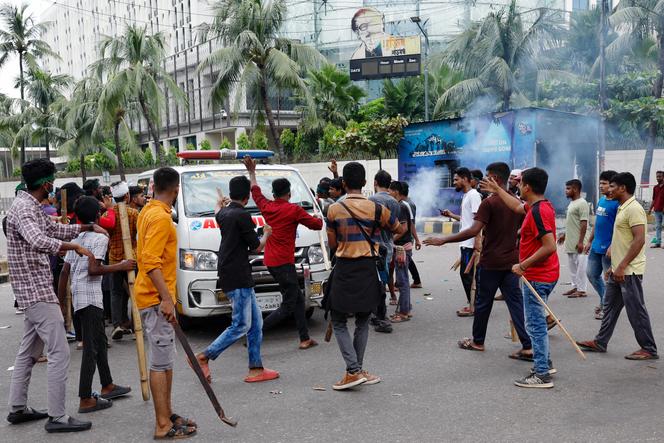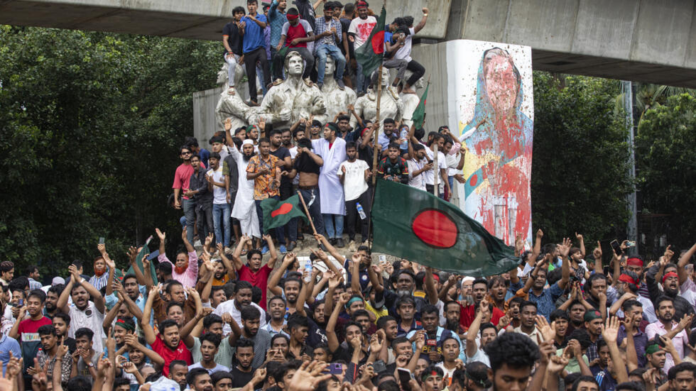Bangladesh Prime Minister Sheikh Hasina resigned and fled the country on Monday after hundreds of people were killed in a crackdown on demonstrations that began as protests against job quotas and swelled into a movement demanding her ouster.
Jubilant crowds stormed unopposed into the opulent grounds of the presidential residence, carrying out looted furniture and TVs.
One man balanced a red velvet, gilt-edged chair on his head. Another held an armful of vases.

Elsewhere in Dhaka, protesters climbed atop a statue of Hasina’s father, state founder Sheikh Mujibur Rahman, and began chiselling away at the head with an axe.
The flight into exile ended a 15-year second stint in power for Hasina, who has ruled for 20 of the last 30 years as leader of the political movement inherited from her father, assassinated with most of his family in a 1975 coup.

Hasina had left the country for her own safety at the insistence of her family, her son Sajeeb Wazed Joy told the BBC World Service.
Hasina was “so disappointed that after all her hard work, for a minority to rise up against her”, Joy said.
She would not attempt to mount a political comeback, he said.
Earlier, army chief General Waker-Uz-Zaman announced Hasina’s resignation in a televised address to the nation and said an interim government would be formed.
He said he had held talks with leaders of major political parties – excluding Hasina’s long-ruling Awami League – and would soon meet President Mohammed Shahabuddin to discuss the way ahead.

“The country is going through a revolutionary period,” said Zaman, 58, who had taken over as army chief only on June 23.
“I promise you all, we will bring justice to all the murders and injustice. We request you to have faith in the army of the country,” he said. “Please don’t go back to the path of violence and please return to non-violent and peaceful ways.”
The military spokesperson’s office said that a curfew would be in force from midnight on Monday until 6 a.m. on Tuesday, after which all schools, factories, colleges and universities would be open.
Hasina’s government had imposed an indefinite curfew from Sunday evening and a three-day general holiday from Monday.


